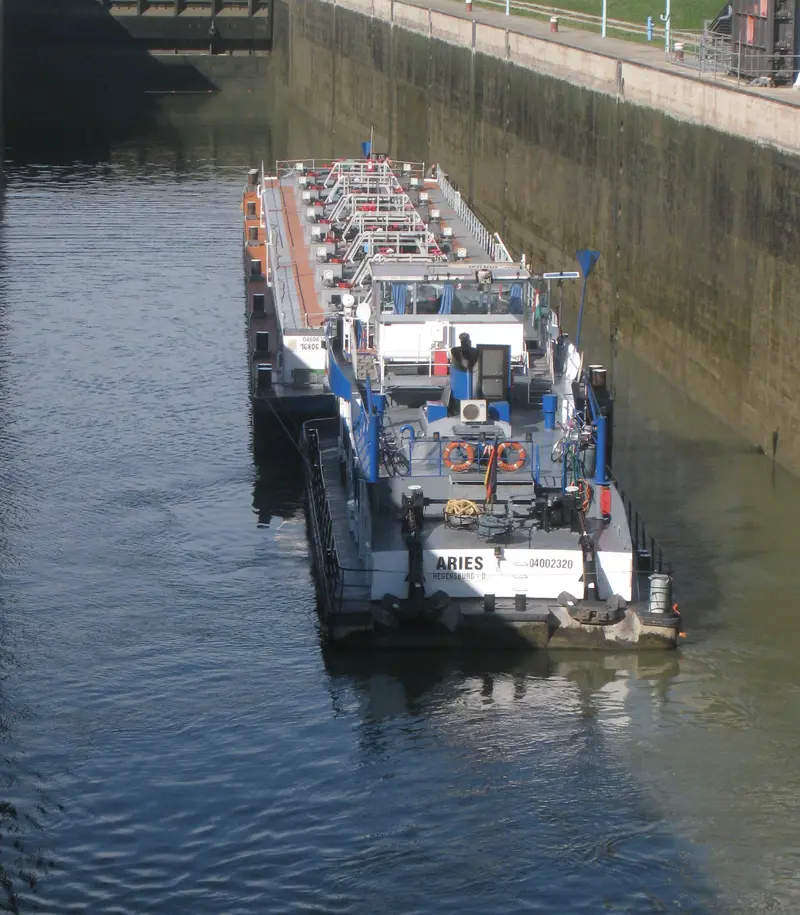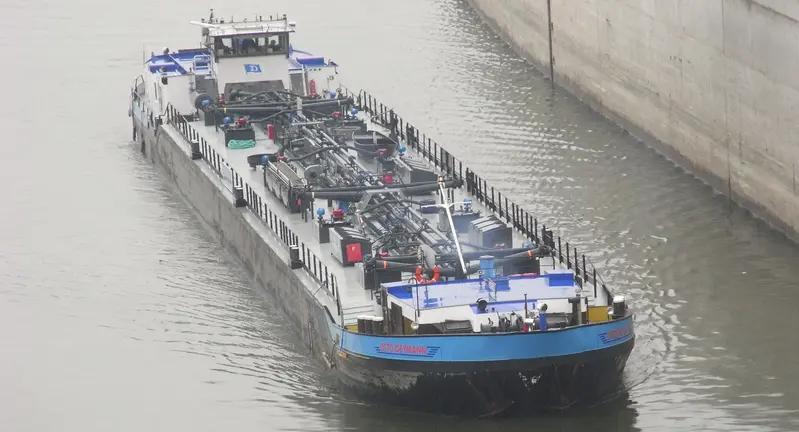Inland navigation is recognised as a cost-effective and environmentally friendly mode of transporting bulk goods for industry. This also includes fuels, i.e. petroleum products, which account for around 15% of the total transport volume on the Austrian Danube. This is because the European transport sector, with all its associated transport modes, is still predominantly oil-based. The transport of these, such as gasoline and diesel, is handled to a large extent by inland waterway vessels. According to Statistics Austria, petroleum products accounted for more than 1.2 million tonnes in 2021 on the Austrian section of the Danube.
With the ongoing energy transition and increasing environmental awareness, promoted by policymakers, new sustainable fuels for the transport sector, including electric propulsion, are increasingly entering the market. Many of these products, such as biodiesel or bioethanol, but also hydrogenated vegetable oil, are also liquid products and in some cases have a similar composition to their fossil predecessors.
In the long term, these products should not only replace the use of fossil fuels, but can also be transported in an environmentally friendly way by inland vessels. In addition to shipping itself, other modes of transport that cannot be electrified, such as heavy goods vehicles on the road and aircraft, also need to be supplied with alternative fuels. This opens up promising opportunities for inland navigation.
Whether sustainable aviation fuels, hydrogenated vegetable oils, biofuels or synthetic fuels. The fuels of the future must also reach the end user in a resource-saving manner. The particularly large volumes, the efficient and safe transport and the fact that many (petro)chemical companies are already located alongside the Danube make inland navigation the ideal mode of transport for sustainable fuels.


